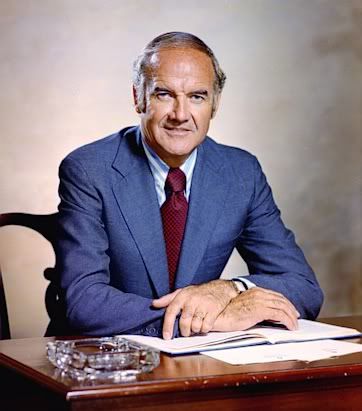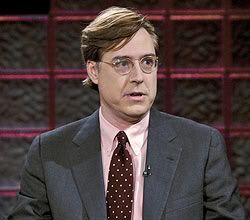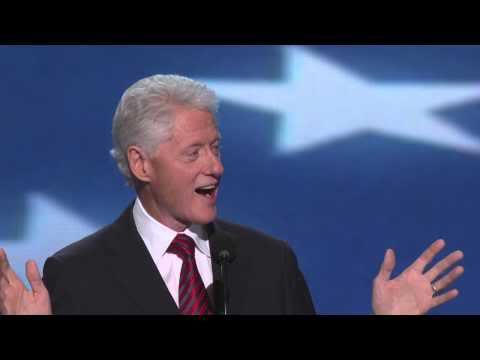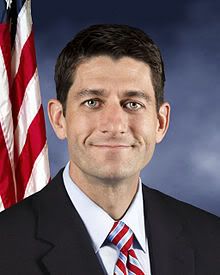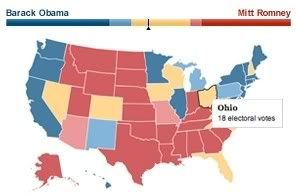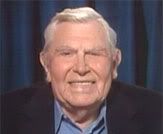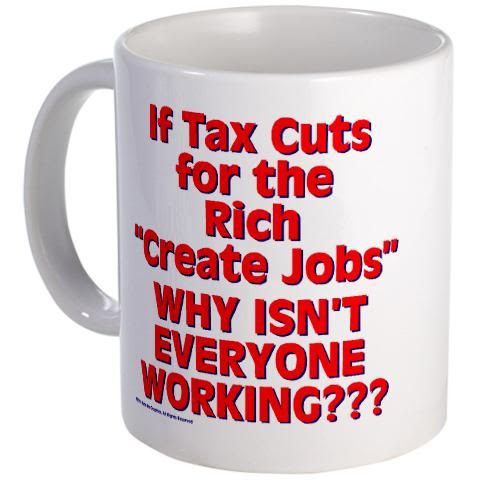Thoughts of a Christian Centrist: On the Role of Government
Our Friend Wordgazer
the original
is hereThis editorial does not necessarily represent the views of the blog partners and is more centrist than we usually are. It does represent the thinking of a respected friend who has gone from republican to independent. Part of who I have become over the past 10-15 years has to do with questioning. I used to just follow the conservative Republican ideas that I thought good Christians were supposed to believe. But as I have questioned things, I have moved more and more into the center, and there, in recent years, I have stayed. Not that I’m really into politics—in fact, I’d rather avoid thinking about them much at all. But to keep some kind of intellectual integrity, and because I have responsibilities as a voting citizen (thank you, suffragettes!) I have had to decide where I stand in the polarized political climate we in the U.S. live in today.
Recently I bought and read
Left, Right & Christ (Russell Media, 2011), in which a Christian Republican and a Christian Democrat each take chapters to address the pressing political issues of our time. The foundational issue was the role of government. I wasn’t really satisfied with the Christian Democrat’s response— she seemed to me to skirt all around the issue without ever addressing it head-on. But it turned out that the Christian Republican’s response was one I couldn’t agree with at all.
So here are my own thoughts on the role of government, from a Christian centrist’s perspective.
D.C. Innes, the Republican contributor in
Left, Right & Christ, defines the role of government using just two short passages from the New Testament. 1 Peter 2:13-15 says that “governors [are] sent by him [the Lord] to punish those who do evil and praise those who do good. And in Romans 13 we read that rulers carry out God’s wrath on wrongdoers and approve those who do good. Innes concludes from this:
“The task of government is simple and limited: punish those who do evil and praise those who do good. . . God appoints government for our benefit, but it is not to provide every good. It is only to prevent bad conduct with creditable threat and punish it. . . .” (pages 58-60).
Based on this, Innes says only private charities should help the poor. As he puts it, “God’s purpose for civil government is that it provide an umbrella of protection for person and property that frees people to go about their business undisturbed, whether by neighbor or by government itself, providing for themselves, their neighbors, their community as a whole, and anyone whom they find in need.” As I read through the book, I realized that by “community as a whole,” Innes is not talking about people voting for local social projects such as homeless shelters or food banks. He was talking about every individual giving to the community as he or she sees fit—but local taxation for the benefit of the poor seemed just as anathema to Innes as federal taxation.
The problem here is that Innes is making these verses do much more than I think Peter or Paul ever intended. Looking at the context of each letter, neither apostle was in any sense writing a comprehensive theory of government. Paul's letter to the Romans is largely devoted to the theology of justification by faith. Chapters 12-15 answer the question, “how should we live in light of this gospel?” with a series of practical-living precepts for the young Christian church. Peter’s first letter is written to scattered believers in Christ living in pagan cities and is largely about how to hang onto the faith through persecution. Both letters advise Christians to be submissive to the governing authorities and mention the power of civil government to punish wrongdoers and give approval to those who do right. But neither of them says, implicitly or explicitly, that government is meant by God to be limited only to those two things. In fact, the New Testament, which focuses on the new creation in Christ and His kingdom, simply is not about rules for civil government in any sense at all. Proof-texting a complete theory of government from a few passages is not good exegesis.
If I as a Christian am going to come up with a theory of government, I will need to base it on principles: the principles of civil justice found in the Old Testament (remembering that we are not encouraged by Christ or the apostles to attempt to establish Moses’ civil law over any other nation), and the basic principles of justice, fair dealing and do-unto-othering found in the teachings of Christ and the apostles.
So what is the proper role of civil government? This question used to be answered by Christians in terms of the divine right of kings to rule. They used the same passages which are today used to declare such complete limits on government, to establish the full authority of the king over all the people in every area of life. But since I believe these passages were not actually intended to comprehensively enumerate governmental powers, what can I say about what makes a properly functioning government?
This is how I’d sum it up:
The proper role of government includes but is not limited to punishing wrongdoers and praising those who do right. In a very real sense (and especially in a modern representative democracy) government is the community as a whole, acting together— and there are things that a united community can accomplish which groups of individuals or businesses never can. Civil government’s power is in carrying out those tasks which private citizens or businesses cannot as successfully or efficiently do on their own.
Now, obviously this leaves a huge scope of areas where individuals or businesses can act more efficiently and successfully than the civil government can. Private enterprise, family life, individual pursuits and hobbies—in general, I would say that interference of civil government in these areas, except where wrongs are being perpetrated by one person or group upon another, often just stifles the creative thought and individual development of a free people.
On the other hand, when wrongs are being perpetrated by one person or group upon another, I do think the government needs to be able to intervene. Workplace safety standards, workers’ compensation laws, wage and hour protections, prohibition of child labor—all these things are important safeguards that prevent powerful employers from ruining the lives of employees for the sake of profit. (This is another whole topic in and of itself, though, and I’ll be writing more about it next week.)
But what about things that cannot be done very successfully or efficiently by private citizens? What about the building of roads, bridges, water and sewer systems to span large areas or even the whole nation so that everyone is equitably served? What about urban planning and development, so that we don’t end up living in cities of hodgepodge and confusion, with streets going every which way and with some people enjoying the benefits of infrastructure and some falling through the cracks? What about policies of justice for minority groups, so that they don’t get trampled on by the majority? What about the preservation of national resources like Yosemite and Yellowstone? And what about a basic social safety net that’s available to all, and not those who just happen to live where a church or non-profit charity happens to be operating?
I am not for a “nanny state.” A civil government that takes care of all of our needs, cradle to grave, will not encourage resourcefulness or the work ethic that Jesus and the apostles approved—and it also, by rendering private acts of charity obsolete, discourages the moral growth of each individual acting in personal love for the needy. But there has to be something in between nanny-statism and survival-of-the-fittest, social-Darwinist capitalism. Neither one, I think, are what the Spirit of Christ would lead us to.
The United States, as a society, has decided that our community values include no one having to live in shanty towns such as exist all over the third world, boxes of cardboard or corrugated metal without running water or adequate sanitation. We have decided that employees should not have to work 14-hour days or seven-day weeks, and that employers should not be allowed to hire children or to abandon employees who have been injured on the job. We have decided that certain of the most beautiful portions of our land should be set aside for the enjoyment of everyone, never to become factory sites or lines of stores and parking lots. All of these, if looked at in terms of economic freedom, restrict some people’s freedom regarding how much money it is possible to make. Should all of these social contracts, these whole-community values set forth in law, be abandoned in the name of economic freedom? Or should the human tendency to self-centeredness be given free reign—that anyone with enough money to do so, can freely do anything he or she wants to make a profit? Are we so afraid of any hint of what we call “the welfare state”?
Abraham Lincoln is credited with saying, “You cannot ultimately help a man by doing for him what he could and should do for himself.” This makes sense to me. Safety nets should not trap people in the net. They should give people who are able to help themselves, the resources and the hand up needed so that they can help themselves. But those who cannot help themselves, as well as those who just need a hand up, need a safety net that extends under the whole nation, not just in those spots where private charities are in operation. This is something that the civil government can do more effectively than the private sector can—although, given the notorious inefficiency and red tape of civil government, balance through overlap with private charity where possible, is a definite plus.
D.C. Innes says on pages 75-76: “The Christian moral objection to the welfare state is . . . that it violates the eighth commandment [thou shalt not steal]. . . Thieves come in different forms. . . [T]he government’s power to secure property is also the power to take it away. When a mob uses government to pillage its more propertied neighbors, we call it progressive taxation, or redistribution of wealth. Sometimes we call it fairness. But it is theft all the same.”
My problem with that is that the principles of civil justice found in the Bible simply do not equate taxation for the benefit of the poor, with theft. In fact, unrestrained economic rights are foreign to the concept of civil government under the Law of Moses.
Of course, as I said earlier, we should not as Christians look at the government set up for Israel in the Pentateuch as a blueprint for all governments for all time. But we can glean certain basic principles from the Law regarding how a civil society should govern the treatment of one another. God, working with the people of that time and place, simply did not promote economy liberty over basic equity and fair-dealing. In economic dealings, as in other areas of life, the Law restrained the people from fully exercising their liberty, recognizing that the natural human bent towards selfishness and greed needed to be curbed.
The gleaning law in Leviticus 23:22 amounted to a tax on all landowners of a portion of their income, for the benefit of the poor. The Year of Jubilee in Leviticus 25:13 amounted to a redistribution of wealth every 50 years, so that each family could return to its own land and possessions—and so that the concentration of all the nation’s wealth in the hands of a few could never take place. One of the most foundational principles of the Bible is that all of humanity is sinful, and therefore cannot be trusted to simply do the right thing as long as you leave it alone. The Law included certain regulatory provisions to make sure that everyone in the society did the duty of the society to the poor among them. Though free-will giving was encouraged, it was not left up to free will alone. Israel was set up very early on (Exodus 18:25) on government by leaders over groups of thousands, hundreds, fifties and tens. If a wealthy land-owner denied a poor person the right to glean in his field, the poor person could bring the matter before judges who would enforce the law.
Christian conservatives usually point out at this point that the mandatory giving in the Old Testament was from the well-off directly to the poor, without a government middle man. This is true—and this worked fine for a small, tribal, agriculture-based country in ancient times. But today our wealth is not held in fields for the poor to glean. Land is not held by tribal families so that a Jubilee would result in everyone knowing where to go home to. I don’t think we can get by in our day and age without monetary taxation and a distribution system. In many cases, government contracts with private companies might be the most efficient and best way to get the resources from those who have more than they need, to those who need them. In other cases, it can work better for government agencies to act as the middle man. But as far as I can see, there is nothing inherently evil in a government agency. The evil is in human nature when there is no restraint on power.
However, humans are also made in the image of God and are inexpressibly valuable to Him. When it comes to the value of every human being before God, political theory should not be allowed to override personhood. Jesus said, in Mark 2:27, “The Sabbath was made for man, not man for the Sabbath.” He healed on the Sabbath because the individual standing in front of him in pain, mattered more than the perfect application of Sabbath policy. Should we be happy when conservative laws hold sway and government safety nets are eliminated, but the people who don’t manage to find a private charity are starving?
It seems to me to be common sense to say, “Hey, the poor need to be helped, by the best method possible, even if it doesn’t fit into your economic theories.” As a Christian, and as a citizen of a nation which has always had a strong ethic of care for the poor, that’s where I stand.
Even if many of my brothers and sisters think it un-Christian of me.
